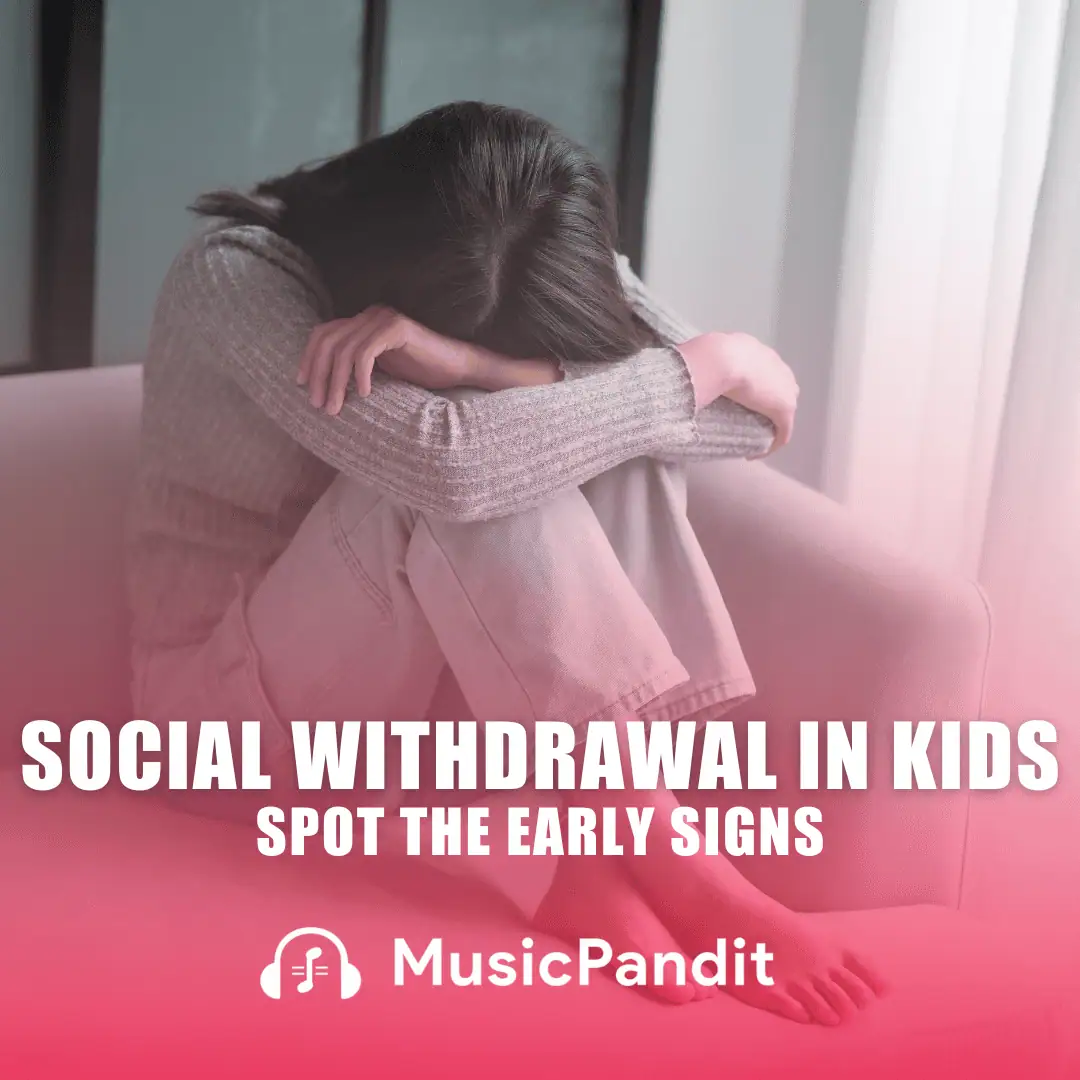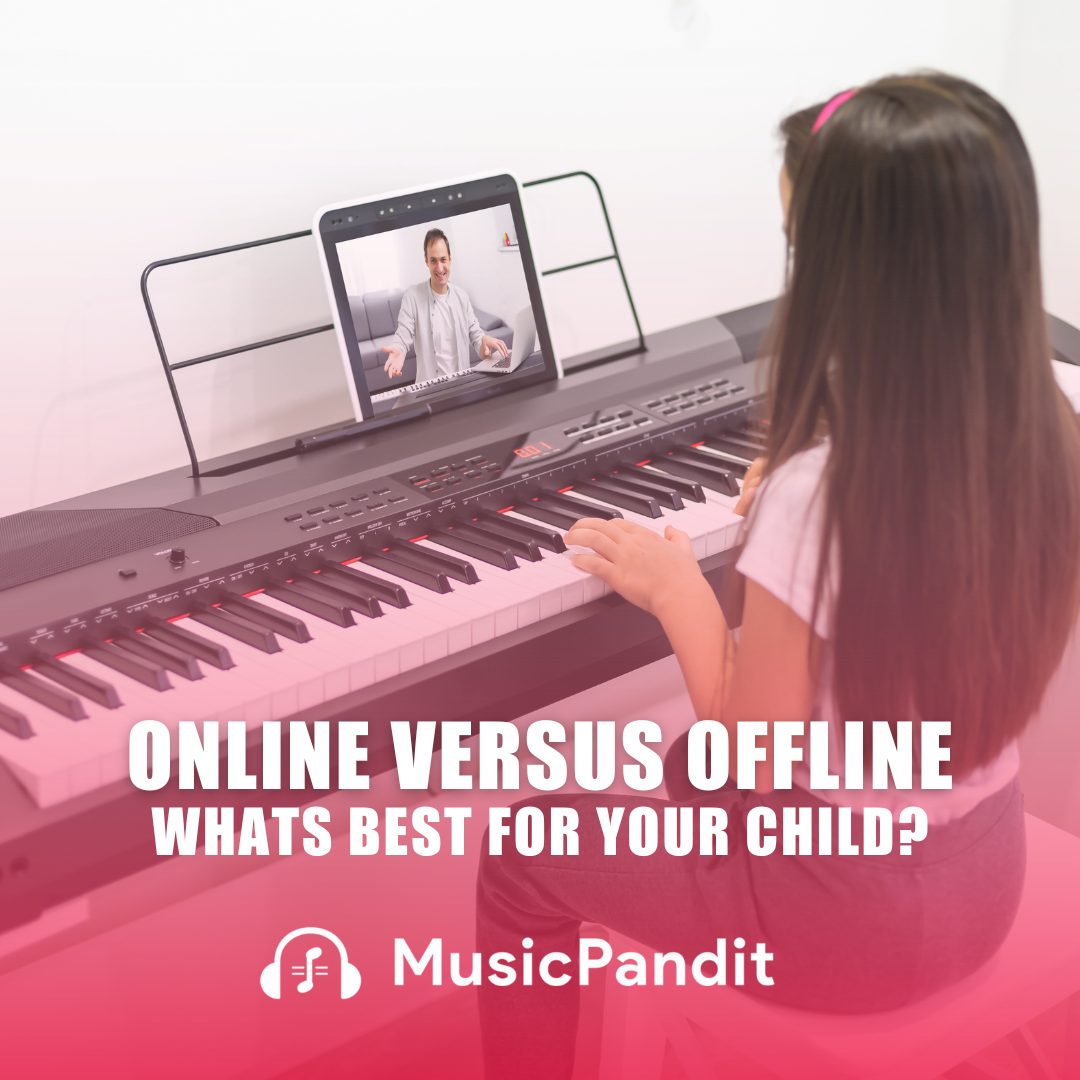Learning to play an instrument is a great way to foster creativity, build confidence, and develop discipline in children. Among the most popular instruments for children to learn is the guitar. However, choosing the right guitar for your child can be challenging, especially if you’re not a musician yourself.

Moreover, you cannot rely fully on music store staff as they are not always as helpful as you’d expect them to be, especially when it comes to buying guitars for kids. The main goal of the staff is to sell the guitars and sometimes whatever is available at the store is often decided to be the “right” guitar for your child. Adding to that, most of the music store staff are also not experienced guitar teachers. They don’t possess the right knowledge about teaching guitar to kids.
So, when we talk about buying a guitar for a 8 year old, their advice may not always be reliable, even if they have a good suggestion. In such cases, it’s always correct to ask an experienced guitar teacher who works or has worked with children before. As they have experience in dealing and teaching children they will be able to recommend the right guitar for your child.
When choosing a guitar, there are several factors to consider to ensure you are selecting a high-quality instrument that will meet your needs and preferences. Here are some key quality considerations to keep in mind:
Factors to Consider When Choosing a Guitar
Our teachers have put some points on how to choose the right guitar for your child. You can go through these and by the end of this article you will have a better understanding of which or what type of guitar is suitable for your child if they are starting their guitar classes soon.
-
Choosing the Right Size Guitar
One of the most important factors to consider when choosing a guitar for your child is their age and size. Guitars come in different sizes, and it’s important to choose one that fits your child comfortably. A guitar that is too big can be difficult to play, and it can also be discouraging for the child. On the other hand, a guitar that is too small can be uncomfortable to play and may not produce the desired sound.
For younger children, a 1/4 size or 1/2 size guitar is usually the best option. These guitars are smaller and easier to handle, which makes them ideal for children aged 7 to 8 years old. For older children, a 3/4 size guitar is a good option. These guitars are slightly larger and more suitable for children aged 8 to 12 years old. For teenagers or older children, a full-size guitar is the best option.
-
Acoustic vs. Electric Guitars
Another factor to consider when choosing a guitar for your child is whether to go for an acoustic or an electric guitar. Acoustic guitars are the traditional type of guitar, and they produce a warm and natural sound. They are also light, portable and don’t require an amplifier to be heard. Acoustic guitars are ideal for beginners because they are simple to use and require little setup.
Electric guitars, on the other hand, require an amplifier to be heard. They produce a louder and more powerful sound, which makes them ideal for rock and heavy music. Electric guitars are also more versatile than acoustic guitars because they can produce a wide range of sounds and effects. However, they are more complex to use and require more setup than acoustic guitars.
For younger children and those who are taking online guitar classes, an acoustic guitar is usually the best option because it’s simpler to use and doesn’t require an amplifier. For older children who are interested in rock or heavy metal music, an electric guitar may be a better option. However, it’s important to keep in mind that electric guitars require more setup and maintenance than acoustic guitars.
As far as we are concerned, an electric guitar can be a good choice once your child has reached an intermediate level in playing the instrument. At this stage he/she can explore more techniques and sounds which makes the learning more enjoyable.
-
Budgeting for Your Child’s Guitar
The cost of a guitar is also an important factor to consider when choosing the right guitar for your child. Guitars can range in price from 3 thousand rupees to even a lakh. While it’s important to choose a guitar that your child will enjoy playing, it’s also important to stay within your budget.
For younger children who are just starting to learn the guitar, a basic model is usually sufficient. These guitars are more affordable and are designed for beginners. As your child progresses, you can consider upgrading to a more advanced model.
-
Brand and Quality
The brand and quality of the guitar are also important factors to consider. There are many guitar brands on the market, and it’s important to choose one that is reputable and known for producing quality instruments. A good quality guitar will sound better and be more durable than a low-quality guitar.
When we talk about the build quality of a guitar, it refers to the construction and materials used. A high-quality guitar will have solid construction, with a sturdy body and neck made of high-quality woods. Look for guitars made from materials such as mahogany, rosewood, and spruce, which are known for their durability and tonal qualities. In addition, the sound quality of a guitar is perhaps the most important factor to consider as well. Look for guitars with a clear sound and good sustain.
Some popular guitar brands for children include Yamaha, Pluto, Cort, etc. These brands are known for producing quality instruments that are suitable for beginners. It’s also a good idea to read reviews from other parents and musicians to get an idea of the quality and durability of different guitar models. Consider the reputation of the guitar brand you are considering. Established brands with a good reputation for quality are often a safer bet than lesser-known brands. However, don’t discount lesser-known brands without doing your research first, as they may offer high-quality guitars at a more affordable price.
-
Playability
The playability of the guitar is another important factor to consider. The playability refers to how easy it is to play the guitar and how comfortable it feels in your child’s hands. A guitar that is difficult to play or uncomfortable to hold can discourage your child from practising and progressing.
When choosing a guitar, it’s important to make sure that it has a comfortable neck size and a low action. The neck size refers to the width of the neck and the distance between the frets. A smaller neck size is usually more comfortable for children with smaller hands. The action refers to the height of the strings from the fretboard. A lower action makes it easier to press down on the strings, which makes it easier to play.
It’s also a good idea to take your child with you when shopping for a guitar so they can try different models and see which one feels the most comfortable to them. Let your child hold the guitar and check the guitar size before you buy it.
-
Style and Preference
Another factor to consider is your child’s personal style and preferences when choosing a guitar. Your child is more likely to practise and enjoy playing a guitar that they are excited about. Talk to your child about what type of music they like and what kind of guitar they would prefer.
For example, if your child is interested in rock music, they may prefer an electric guitar with a sleek and edgy design. If they are interested in folk or country music, they may prefer an acoustic guitar with a classic design.
-
Don’t Forget About Accessories
When you buy a guitar it won’t be a complete purchase without accessories. You have to make sure to get everything your child needs in order to use their guitar. Here are some accessories you may need.
- Extra set of strings.
- Guitar picks.
- A guitar tuner.
- A guitar bag.
- A strap.
- An amp and a cable if it’s an electric guitar.
-
Get Free Advice
After all the inputs that we have shared here, if you are not sure or you just want to confirm that you are buying the right guitar, then you can reach out to us! We help parents to pick out the right guitar by giving free advice on which guitar to buy for your child. All you have to do is email your info to: support@musicpandit.com.
We tend to do this for our students, so you can be sure you will get the right recommendation. Meanwhile, it’s crucial that children get a positive experience learning to play the guitar. The right instrument is the key to your child’s musical success and enjoyment.
Conclusion
Choosing the right guitar for your child is an important decision that requires careful consideration. By considering factors such as age and size, acoustic or electric, budget, brand and quality, playability, and style and preference, you can find a guitar that your child will enjoy playing and that will help them progress in their musical journey.
Remember to take your child with you when shopping for a guitar so they can try different models and see which one feels the most comfortable to them. Encourage your child to practise regularly and provide them with the necessary resources and support to help them succeed. With the right guitar and the right attitude, your child can develop a lifelong love of music and a valuable skill that they can use for years to come.
If you are looking for the best online guitar classes, you can always get in touch with the Music Pandit team to learn more about our approach and methodology. You can also book a free counselling session to find out what works best for your child.














